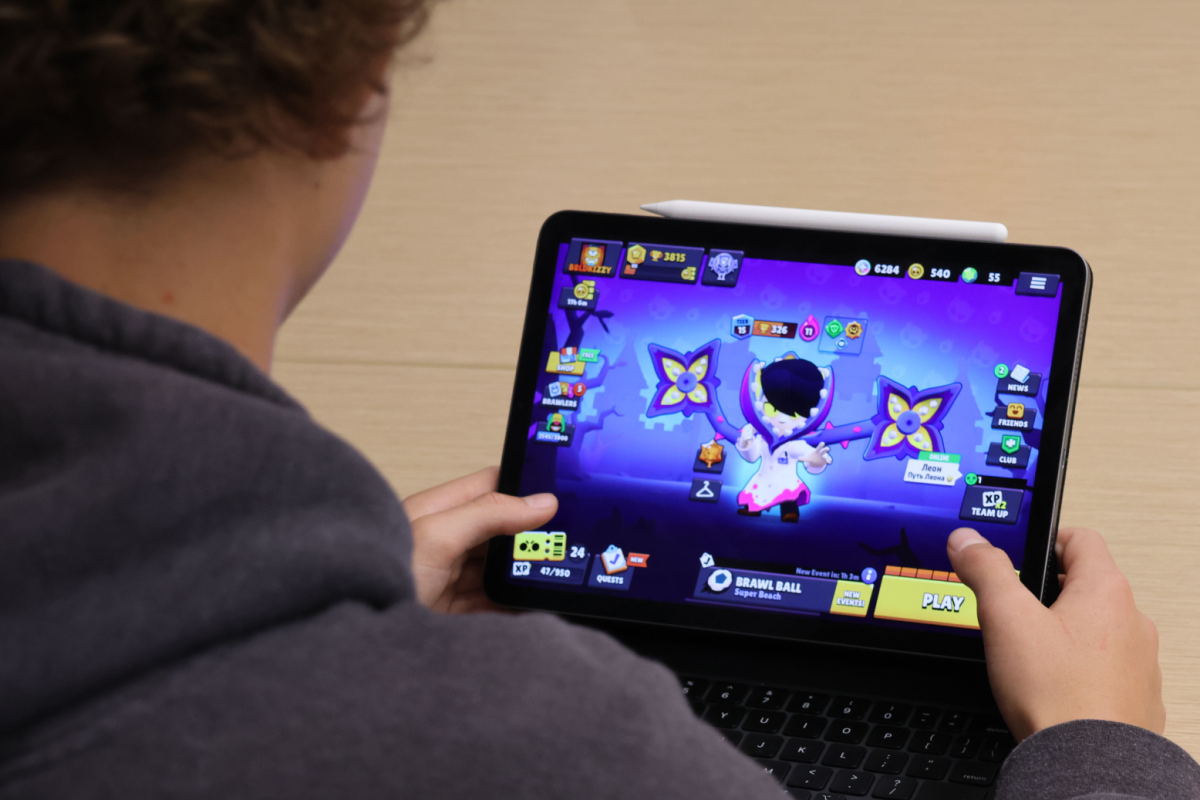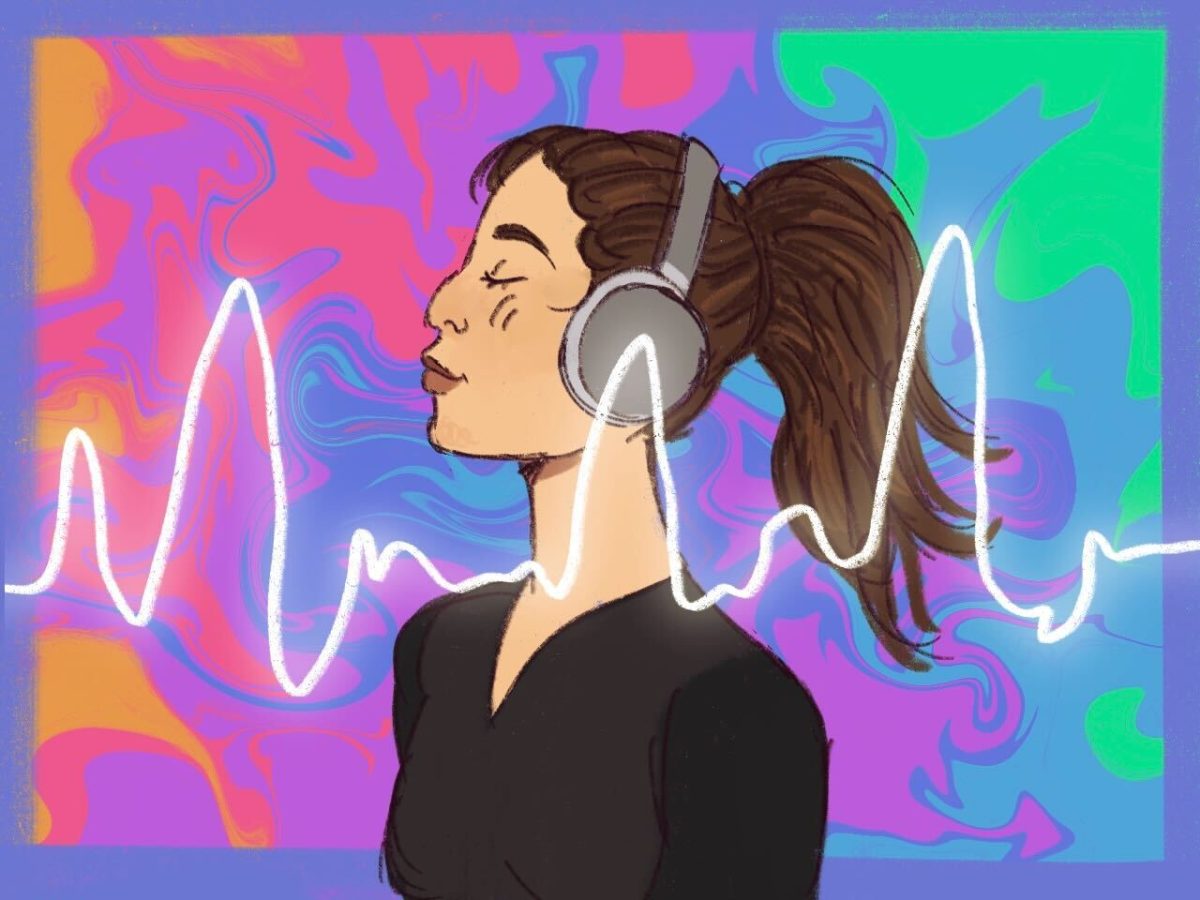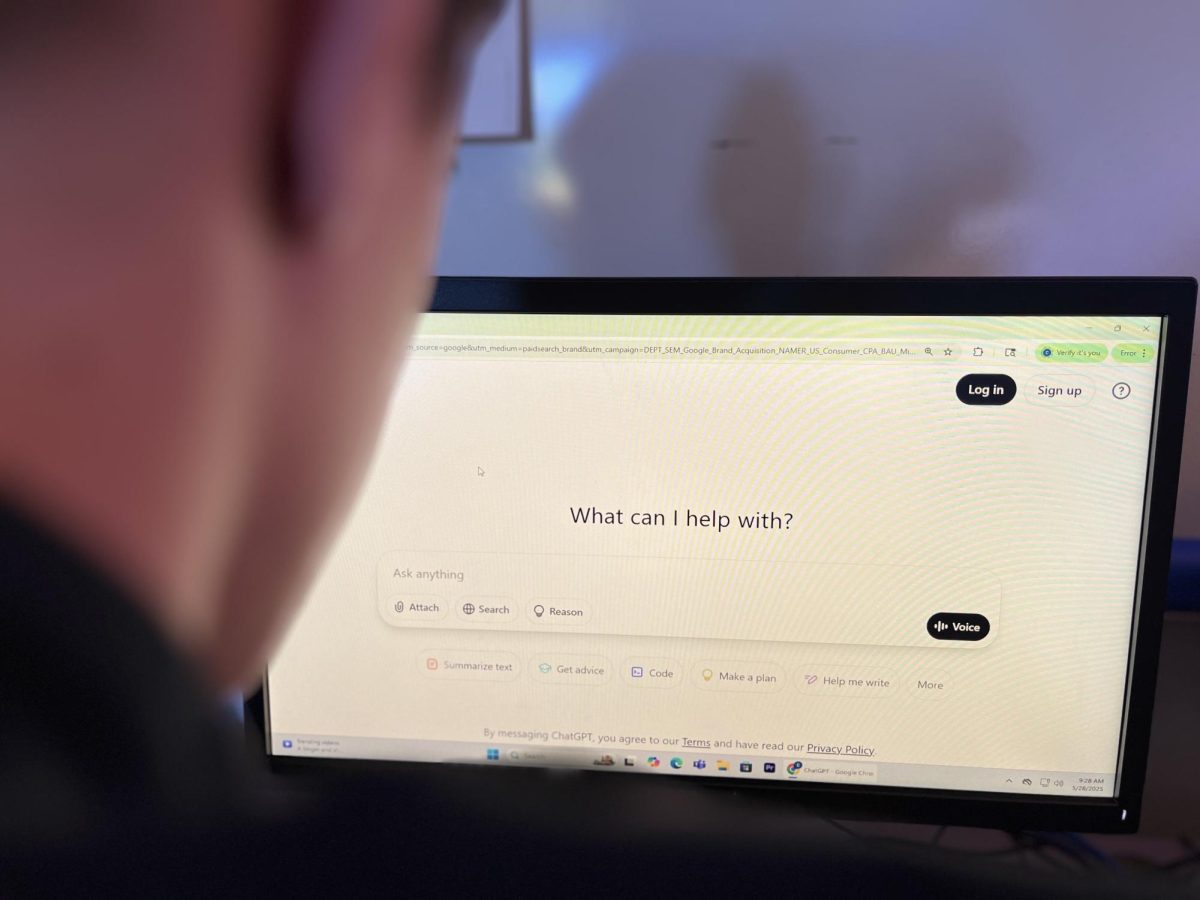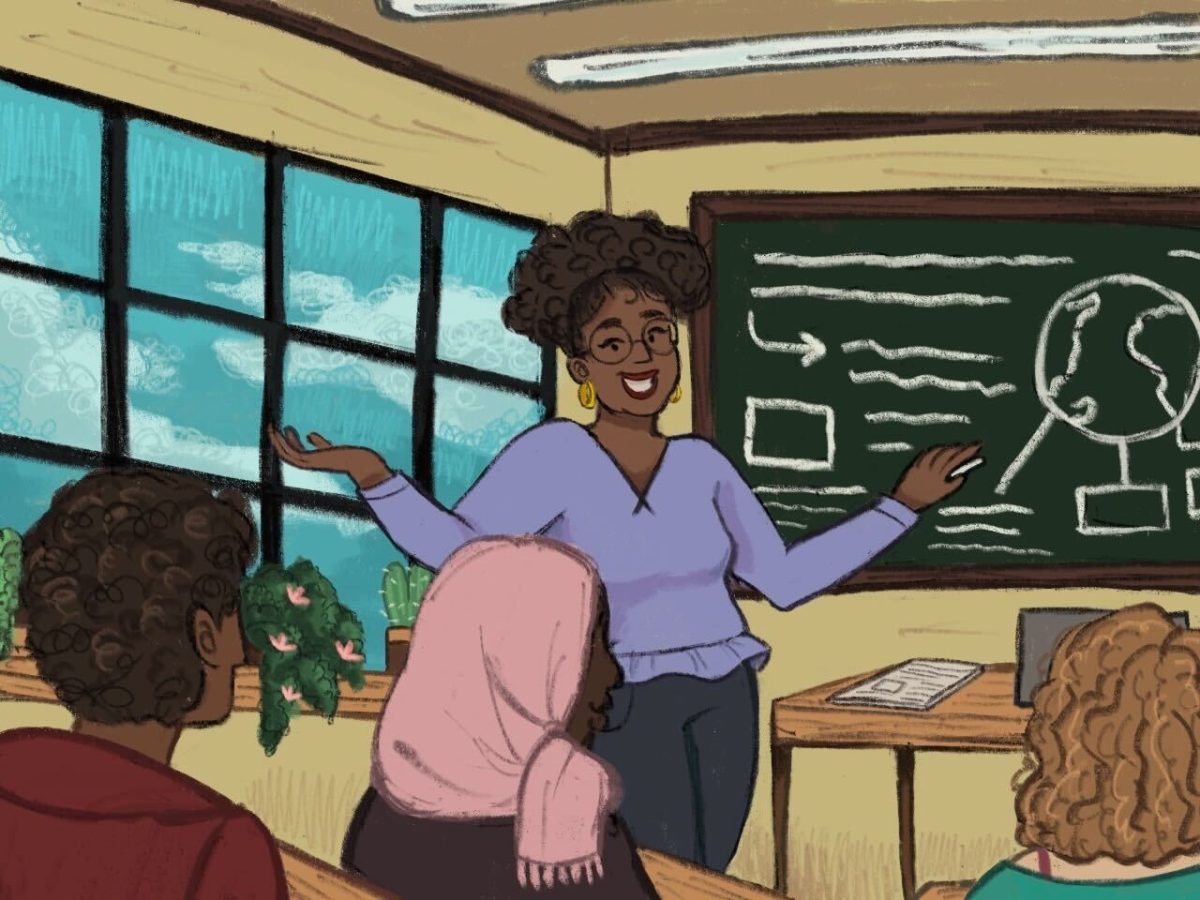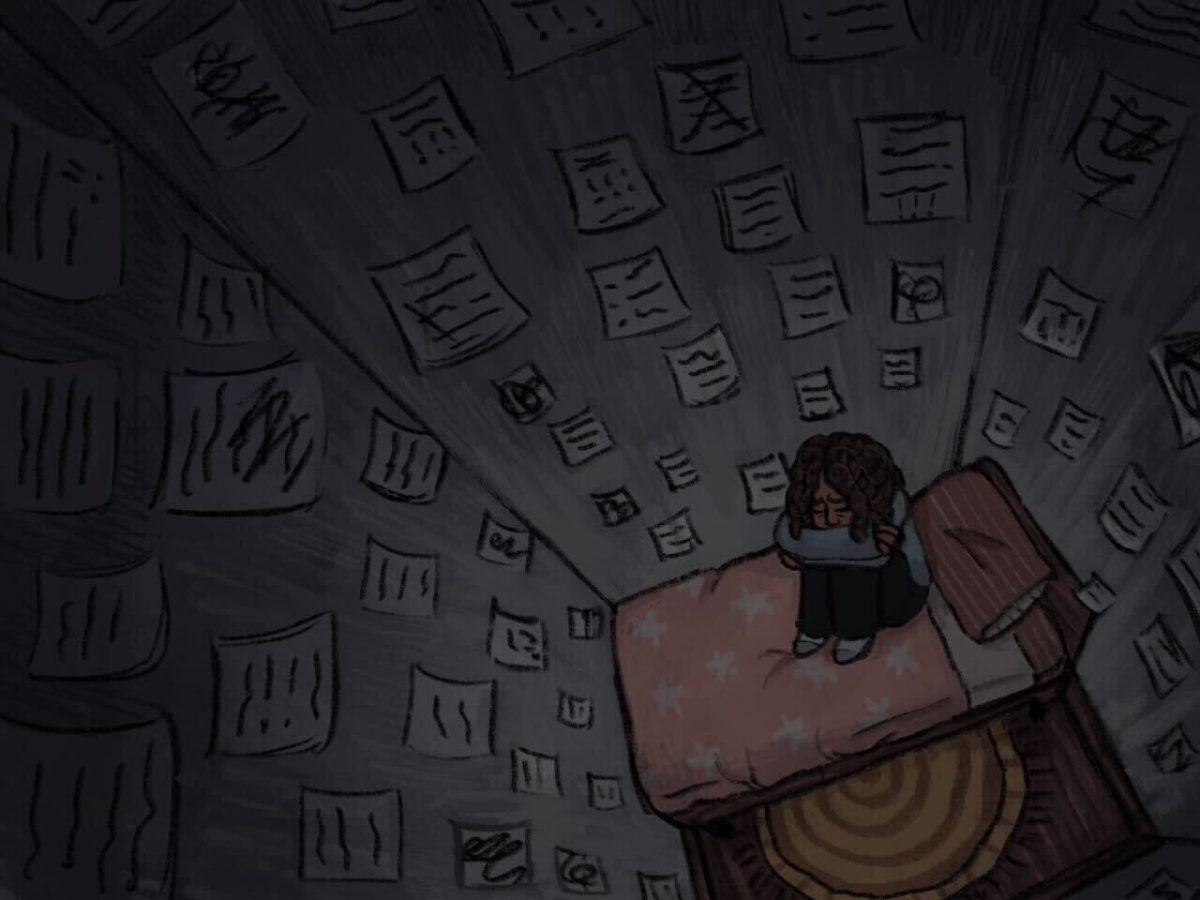As students are using iPads instead of paper, teachers should be aware of the consequences — such as not paying attention in their classes and the amount of time they are staring at their devices.
Personally, I am very grateful that La Salle uses iPads instead of paper and physical textbooks. I do not want to carry around a heavy backpack as well as having to go to my locker every day. I enjoy only having to remember my iPad and an occasional notebook rather than several notebooks plus textbooks for whichever classes require them.
As well as not doing their work, students also have easy access to artificial intelligence (AI). AI is a big problem when it comes to schoolwork because it gives students an easy opportunity to cheat and not do their own work.
The trust between teachers and their students has been severely impaired due to AI being so easily accessible — there’s no way to know 100% that students are doing their own work. It’s understandable for teachers to be frustrated with the fact that students are using AI. Their job is made more difficult by the tool’s presence, as it offers a shortcut for students to complete their work rather than learn the materials they’re being taught.
Nearly half of students in grades 10-12 said they use artificial intelligence tools for school and non-school activities.
This year, La Salle has incorporated stricter technology rules to keep students from slacking off in class and using AI, with students being required to put their phones in caddies set up by their teachers at the beginning of every class. In the majority of syllabi, teachers make it clear that students are prohibited from using AI unless clearly instructed to do so.
“The use of ChatGPT and other artificial intelligence (AI) tools to complete classroom assignments and assessments must come by the direction and permission of the teacher,” Mr. Hugh Hegarty’s AP U.S. History syllabus says. Most teachers include similar expectations for their students.
Along with students purposefully not doing their work, it’s also very common to have technical difficulties such as internet issues. Personally, I tend to have a lot of issues with the Wi-Fi, especially this year.
So far, I have gone through four different Wi-Fi passwords for the school internet, yet I continue to experience complications. It’s extremely frustrating and difficult when it comes to Wi-Fi issues because all of my work is online and there aren’t many ways to work around that. I find myself with more and more homework stacking up to do when I get home, where my internet works perfectly fine.
Although my internet issues are annoying, the most frustrating thing for me is when a teacher assigns paperwork while I’m absent, making it more difficult to make up and turn it in on time. I hate having missing work, which would quickly add up for students that are frequently absent if we used paper for everything instead of iPads.
iPads are very helpful in that case because the online work allows me to catch up on class work outside of school and keeps me from falling behind.
There are specific restrictions that can be set up where students need a parent’s permission for something on their iPads, but thankfully, I don’t have this issue, but it can make it difficult for students to use certain apps and websites in their classes if their parents don’t allow it.
Even with all of the possible complications when it comes to iPads, they can also negatively affect students’ brains and eyes because we are staring at a screen for about eight to nine hours everyday for five days a week. It doesn’t help that teenagers in general are on their phones for an extreme amount of time everyday. The hours quickly add up when you factor in the amount of screen time required to complete schoolwork.
Last year, I had to get glasses to help me with my headaches and blurry vision that I would get from looking at my iPad all day every day.
Asthenopia — eye strain — is commonly caused from looking at a screen for long periods of time, and its symptoms include headaches and eye pain, which is exactly what I was experiencing before I got my glasses. People suffering from asthenopia may lose interest in tasks that require careful attention from the eye such as reading because of the strain on vision.
Despite their potential health risks, iPads are easier to work with because they contain most of our schoolwork and make the workload for students and teachers a lot more manageable, but they are distracting at times and incorporating more paperwork will help keep students engaged.
Another solution could be all teachers trying to balance the amount of physical assignments we have with digital assignments. Balancing digital and physical assignments would be beneficial because it gives students a chance to engage in class and prevents them from slacking off and wandering on their iPads to unrelated sources such as messaging friends and playing games.
If students were held more accountable for their responsibilities to get their work done and stay attentive in their classes, then the main difficulties with students and their iPad usage would significantly lessen.
The schoolwide issue of students not using their iPads appropriately is one that can easily be avoided but must be carefully monitored for various reasons, including complications with physical paper and textbooks, academic integrity, using class time wisely, and lots more.
A simple solution — or consequence — that I thought of is a strike system, which would give teachers the opportunity to report students’ misuses of their iPads. Once the student reaches three reports, they either get detention or endure iPad restrictions. These restrictions can be anywhere from a student not being able to use their iPad in a certain class to not being able to use their iPad at all.
This system would be beneficial because it would teach students that iPads are more of a privilege than a right.
However, as more and more students get their iPads taken away, the struggle for teachers would grow because they would have to print out more paper copies and revise their assignments to make them doable without tech use.
Overall, I believe that using our iPads for homework and out-of-school assignments is the way to go because students have a better chance to prove their reliability from home, but including more paperwork inside of classes will keep students accountable to get their work done with a smaller amount of distractions.
iPads are extremely beneficial even though they bring up issues with students and school. I believe that these issues are avoidable as long as students know that staying focused in class and doing their work is more important than anything else they could be doing with their given time in class.


